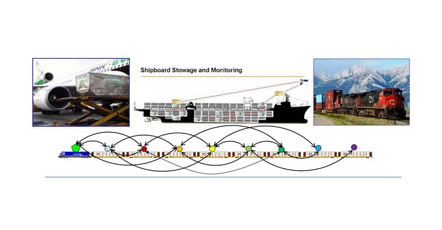RSAE Labs Inc, a Panama City, FL-based company focused on the development, manufacture, integration and maintenance of high technology systems for government and commercial customers, reports that the U.S. Federal Aviation Administration (FAA) has approved its low-power mesh-networking sensors for use on airplanes.
The company’s sensors are battery-powered tags that form ad hoc networks, communicating with each other via radio waves. Eventually, the data is passed to a node that forwards it to a back-end host, where the information can then be analyzed and acted upon. RSAE Labs acquired the meshnetworking technology in 2015, when it purchased the assets of Cubic Global Tracking Solutions.
The individual network nodes, sometimes called motes, support temperature, humidity and shock sensors. Randall Shepard, RSAE Labs CEO, says the company plans to market the solution to pharmaceutical manufacturers that airfreight temperature-sensitive drugs around the world. The system will be able to report, in real time, if a shipment’s temperature falls outside a preprogrammed range.
RSAE Labs has been working to secure approval from the FAA and airlines—both of which must authorize the technology’s use before the devices can be attached to shipments—for nearly two years. The firm performed tests, based on FAA guidelines, in order to determine whether the RSAE Labs system performed within FAA specifications. After reviewing the test results, the FAA sent CGTS a letter indicating that the agency had approved the use of its low-power mesh-networking sensors on aircraft.
“Because of the nature of our technology, which uses very little power, the FAA found that our system would not interfere with RF and other navigational equipment on the plane,” Shepard states. “Getting approval is a big deal, because there are a lot of companies that would like to monitor shipments in real time.”
United Airlines is the first carrier to accept the use of RSAE Labs’ solution on its planes. Each airline must approve the technology’s use individually. According to Shepard, RSAE Labs’ mesh-network system has been evaluated recently by the major North American railroads to detect possible maintenance issues, as well as by a major aerospace company that needs to control the humidity and temperatures of certain pieces of equipment. The U.S. Army has also deployed more than 20,000 RSAE Labs tags to manage logistics regarding military equipment used in the Middle East (U.S. Army Deploys ‘Soldier-Friendly’ System to Track Thousands of Vehicles in Kuwait). The DoD plans to expand this deployment to begin tracking retrograde cargo using the mesh-network tags.

